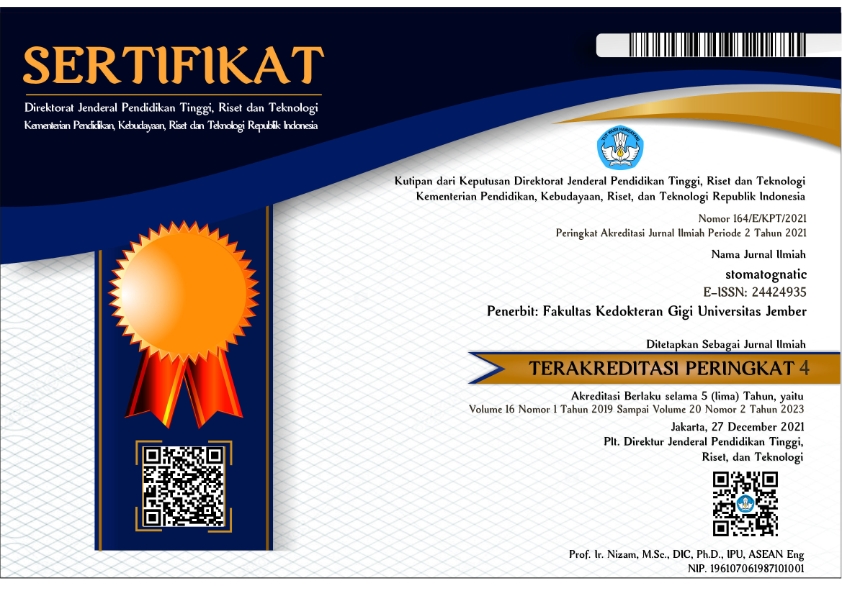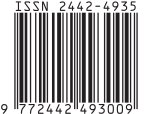EFEK MEPIVAKAIN TERHADAP VITAL SIGN PADA ANASTESI LOKAL BLOK NERVUS ALVEOLARIS INFERIOR
Abstract
Local anesthetics are believed to be the most frequently used drugs in clinical dentistry. Lidocaine and mepivacaine are commonly used in RSGM (Oral and Dental Hospital Jember University), although they are generally regarded as safe, some adverse reactions can be expected and do occur. This study was undertaken to know the effect of vital sign on mepivacaine in local anaesthetic on dental clinical use. Material and Methods: A total of 42 (14 males, and 28 females) healthy students of Faculty of Dentistry Jember University were included in this clinical trial. They were locally injected as block anaesthesia of inferior alveolaris nerve. Blood pressure, pulse, and respiration were examined pre and post injection. Result: Mean of respiration pre/post (18.7/1.8) p>0.05, pulse pre/post (79.8/79.9) p>0.05, and diastole pre/post (74.9/73.9) p>0.05, and systole pre/post (112.0/110.2) p>0.05. There were no clinical and statistical differences on vital sign between pre and post injection. Conclusions: Mepivacaine as local anaesthetic is clinically safe on vital sign.







